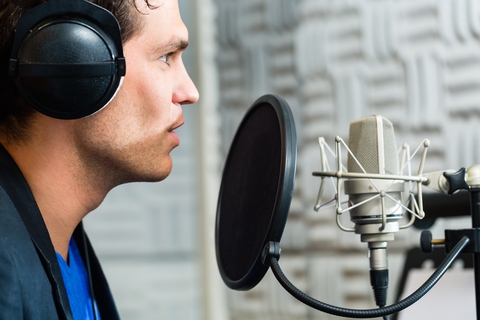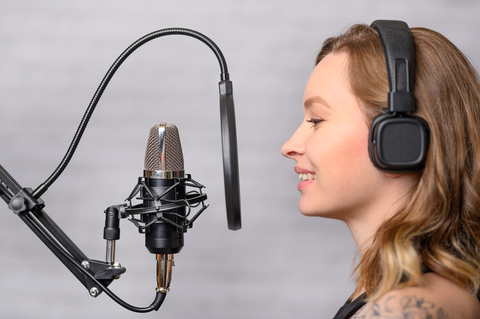Gender Bias in Audiobook Narration
Do you prefer a male audiobook narrator?
|
Do you prefer a female audiobook narrator?
|
Whitney Johnson
:“I’m a female author, so why did I want a man to narrate my audiobook?”
The Dilemma
"I have been very public in my advocacy for women and girls. But something strange happened when my publisher, Bibliomotion, presented me with 11 possible Audible narrators for my second business book. My knee-jerk response was to choose a man."
"If I wanted people to buy my book, I had to confront the reality that both men and women are more likely to part with their money when the voice doing the asking is male. So who can blame me for automatically going for a male narrator? What if choosing a female narrator cut my audiobook sales by two-thirds? The data suggested that a male voice would sell my book better – and make it sound more authoritative and trustworthy."
"But I had to ask myself: Was my decision based purely on logic, or was my own bias talking back to me?"
The Research Said . . .
"We prefer low voices because, we assume, voices say something far beyond the words they convey: We perceive men with lower-pitched voices to be more attractive and physically stronger--and also more competent and more trustworthy--than their less burly-voiced peers. And we perceive women with lower-pitched voices along the same lines (though we also tend to perceive them, tellingly, as less attractive than their Betty Boop-y counterparts)" (Barber).
"A 2012 study published in PLoS ONE found that both men and women prefer male and female leaders who have lower-pitched voices across a variety of fields, from more stereotypically masculine fields to more stereotypically feminine ones" (Watson).
"Some research in the psychology literature suggests people find men and women with lower voices to be more authoritative and dominant" (Watson).
In a recent audiobook research study by Dr. Emma Rodero she found that the "low-pitched voices were considered the most pleasant in all the variables analyzed, followed by medium-pitched and high-pitched voices."
The Decision
In Johnson's case, she had to ask herself a hard question: “Do I put more stock in men’s voices and ideas than women’s, even my own?”
She reasoned: "Despite my initial gut reaction, I chose a woman narrator. In retrospect, there was no other real choice. If I’m telling my readers to dare, dream, and disrupt the status quo, then I have to put principle before potential profit. I have to confront my own hidden biases head-on: women’s voices must be heard, starting with my own."
The audiobook industry tends to match the narrator’s gender with the gender of the author—even for non-fiction books—but Johnson had to overcome her own bias and risk losing revenue to choose a female narrator for her book.
Julia Whelan
Sexism in the audiobook industry
Audiobook Casting Practices
"Generally, the industry tries to cast based on the author’s identity, unless the subject matter calls for a different, more creative casting. I’ve done fiction books by men with a female protagonist" but not "a nonfiction book written by a man" (Kitchener interview).
Whelan says "it goes back to [the gender disparities in] publishing. The books that get the most marketing money, the books that make the biggest splash, are still mostly written by men" (Kitchener interview).
Male Listeners' Reaction to Female Voices
It is hard for the audiobook industry to make the shift to cast more female narrators because, according to Whelan, "male listeners, in particular, can have a certain reaction to a female voice. We’re told, ‘Your vocal fry is really off-putting,’ ‘Why do you have to speak so high,’ or “Why do you sound so shrill?’" (Kitchener interview).
Whelan observed that "part of the problem is that women have been socially conditioned to present their voices in a certain way. Maybe we have told them that high and breathier is sexier ... or that they should present their statements as questions, that they should pull back from anything declarative, or deliver statements with a tone of apology. And I think those kinds of vocal patterns are off-putting to a listener of either sex" (Kitchener interview).
Jessica Woodbury
"Hey audiobooks, that’s not what women sound like.”
In one-narrator audiobooks, where the narrator does all of the characters’ voices, there are issues, some sexist, with male narrators doing female voices.
"When he speaks as a male character, he has a variety of tones and cadences, he has higher and lower voices, he lets you know who’s speaking based on how he talks" (Woodbury).
"But when he speaks as a female character, he has just one voice. It is high, sometimes in falsetto, it is nasal, and it is the absolute worst. First of all, the practical issue here is that in this kind of performance, every female character sounds the same. They are completely indistinguishable" (Woodbury).
Inherent Sexism
"But more troubling is the inherent sexism of this performance choice. The female voice is different and other-ing. The high pitch is supposed to tell us that it is feminine, along with other signs including a nasal timbre and/or a breathiness that isn’t present in the male characters. It’s clear that the most important thing we can know about this character is that they are female" (Woodbury).
"Taking on this voice, limits their ability to play with the voice, to emote fully, to create a full character. The female characters have less range. Their voices are unnatural. They become inferior characters in the telling of the story" (Woodbury).
The Research Said . . .
"The narrator’s voice and pronunciation are one of the critical factors impacting the market growth" (Grand View Research).
"While good narration elevates the demand for recordings, bad storytelling with improper breath and pitch control, inefficient characterization, and inappropriate articulation may result in loss of interest by the listener" (Grand View Research).
According to a 2019 Audio Publisher’s Association survey, "Audiobook consumers place a high priority on quality of narration. Nonfiction and fiction listeners alike prefer a professional voice actor to the author as a narrator" (Milliot).
"Inflection, register, and articulation, along with other vital speech components, such as pacing and rhythm, are things that people consciously control. Amazingly, they often make a more significant impression on a listener than frequencies alone" (AnwarH).
New Trends
Options for Female Narrators
One factor that influences the casting of male or female narrators is the book itself. If the book is written in first-person, then the audiobook narrator would be the same gender as the POV narrator in the book. If men write more books than women, then more audiobooks are narrated by men. For books written in third-person, the general practice is to choose one gender for the narrator. Again, male authors would generally have male narrators.
However, some new trends are changing audiobook casting which can give female narrators more equality: dual, duet and full-cast audiobooks. In a dual narrator audiobook, male and female narrators alternate reading the chapters. In duet narration, which seems to be more typical in romance novels, the male narrator does all of the male characters in all chapters, and the female narrator does the female characters in all chapters. Who does the story narration would depend on the point of view of those sections. However, some listeners prefer single-narrator audiobooks because it is a familiar structure, and multiple narrators, if not done well, jolts them out of the story; they find it distracting.
Full-cast audiobooks have a voice actor for each character in the book, plus a narrator; they often have music and sound effects as well. Some of these books get redesigned into audio dramas, so they are more like the old radio shows in the 1930s and 1940s. Another area that would yield more work for female voice actors would be the exploding fiction podcast industry, which provide shorter fiction, often serialized, and freedom from audiobook publisher control.
The Research Said . . .
Josephine from Voice 123provided stats on requests for male vs. female actors for Voice 123 projects:
- From 2003-2020, 58% requested male and 42% requested female voice actors.
- The stats improved slightly between 2018-2020, where 46% requested female and 53% requested male voice actors.
Conclusions
Do listeners prefer one gender narrator over the other? Does the audiobook industry cast female narrators equally with male narrators?
The research did show some gender bias in casting female narrators for single-narrator audiobooks, but some of that was due to the POV of the audiobook. It did show that there are more male narrators than females and that male narrators are perceived to be better for sales.
Note: This information is from my final project for "Introduction to Mass Media" class at Palomar College in Fall 2020. Here is the PowerPoint presentation from the project.